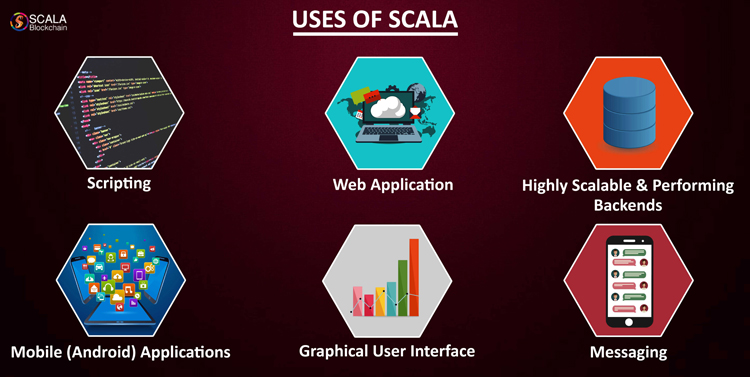Blockchain
Is Scala the future?
Before we get into why we chose to prefer Scala over other dominant programming languages like Java; here is a quick look at what Scala is and what it brings to the table.
Scala is basically an acronym for “Scalable Language”. Scala is not just another general purpose programming language, but the aspect where it stands out is the programming code pattern is simple, elegant, concise, and type safe way. It supports both object oriented and functional programming. The language is steadily gaining popularity among the programmers and one day might even dethrone Java as the most popular among the developers. The major contributing factor for this is that it’s quite easy to learn, and is in-line with the present breakthroughs of technology like Big Data, Spark, Scalding, Akka, Scorex and many more.

Object-oriented scala
As it is a purely object-oriented language; Types and behavior of objects are described by class and traits. The classes can be extended by subclassing and a more flexible mixing based composition mechanism, which serves as a clean replacement for multiple inheritance.
Functional Scala
Apart from object-oriented properties, Scala is also a functional language. It provides lightweight syntax for defining anonymous functions, supports higher order functions, allows functions to be nested,, and also supports currying. Scala’s case classes has a built-in support for the pattern matching model algebraic types used in many functional programming languages. Scala also provides a convenient way to group functions that doesn’t belong to members of a class.
Scala is statically typed
Scala is loaded with a more expressive type system that enforces abstractions to be used in a safe and coherent manner.
In particular, the type system supports:
- Variance annotation
- Generic classes
- Abstraction types and inner class object members
- Upper and Lower type bounds
- Explicitly typed self references
- Compound types
- Polymorphic methods
- Conversions and Implicit parameters
- Scala is extensible
5 Reasons why Scala could be the next big thing
We have narrowed it down to 5 reasons
- An object- oriented language that supports advanced component architecture via classes and traits.
- A functional language that supports immutable data structures
- Most commonly used in Big Data and many other framework development
- Effortless integration with Java and at times caters the shortcomings in Java
- Lines of code are simple, clear and concise.
To wrap it up, Scala is an awesome language that makes coding enjoyable and not tedious. But it is also used by many major corporations;most notably Twitter, LinkedIn, Foursquare, and The Guardian.
